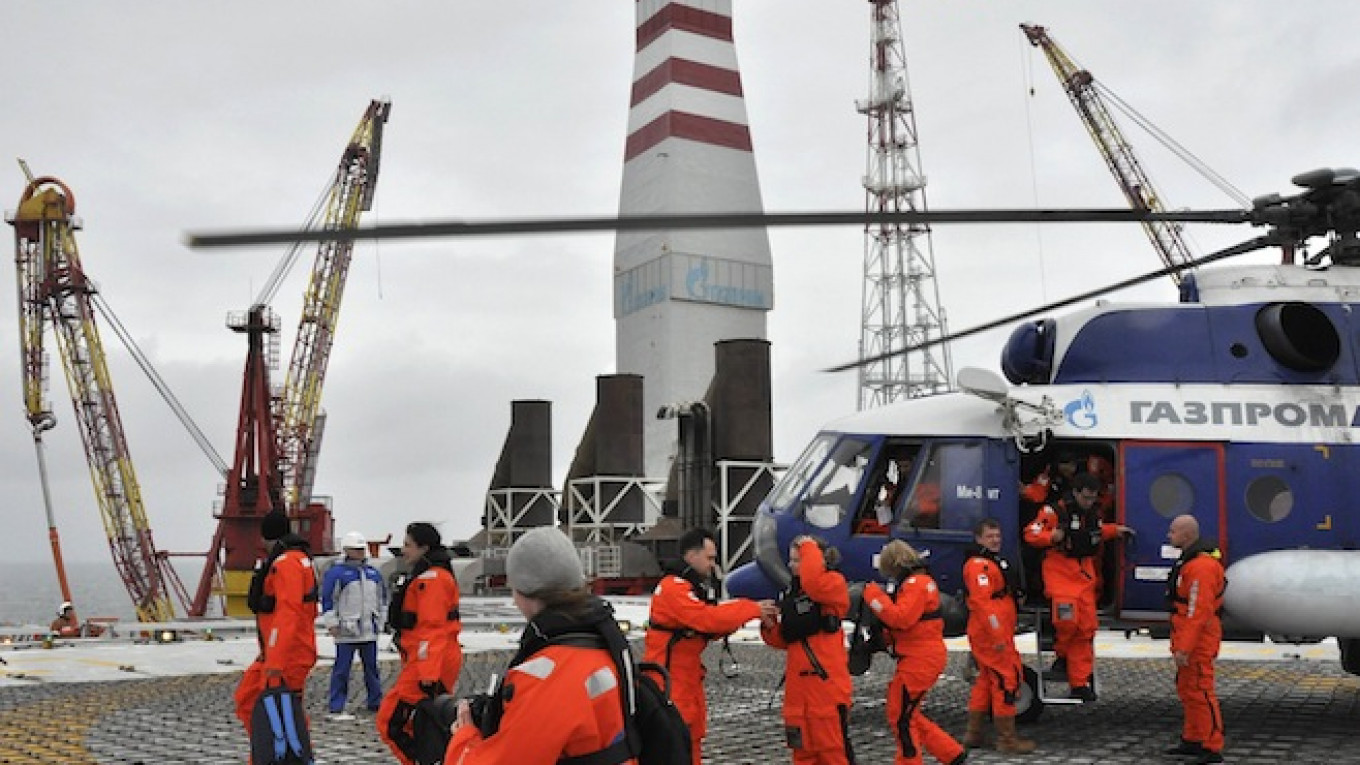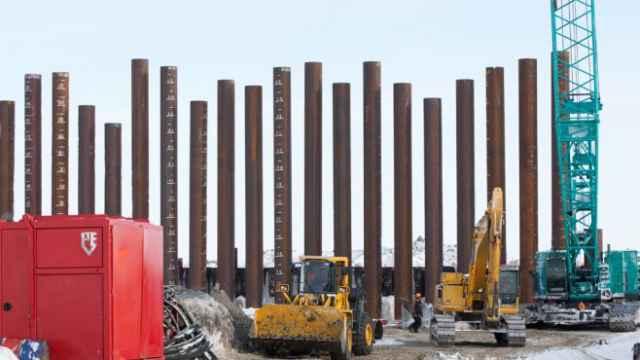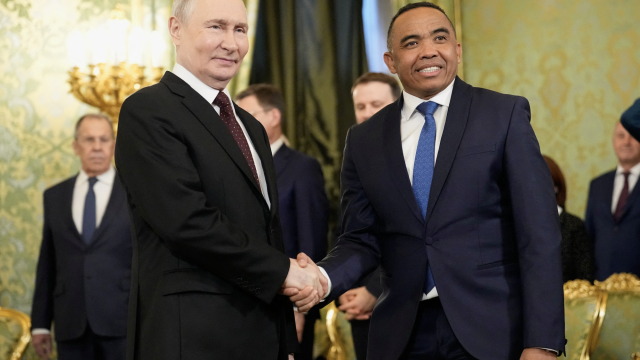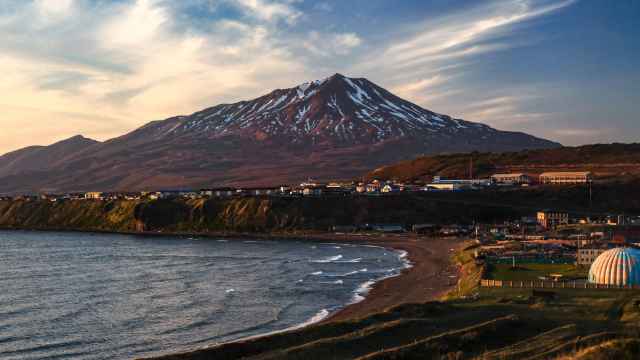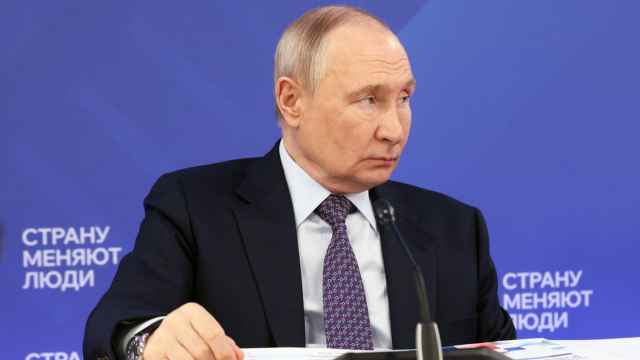PRIRAZLOMNAYA OIL PLATFORM, Russia — Gazprom Neft, the oil arm of Russian state gas company Gazprom, may turn to alternative equipment providers to meet production targets at its Prirazlomnoye oil field in the Arctic, after Western sanctions restricted access to existing suppliers.
Speaking on Friday before Washington banned Western companies from supporting Gazprom Neft in exploration or production in deep water, Arctic offshore and shale projects, Vadim Yakovlev, first deputy CEO at Gazprom Neft, said he believed the company could stick to its long-term goals as things stood.
But aware further sanctions were on the cards over Russia's role in the Ukraine crisis, he added: "If events go under the most negative scenario, we are working at options to buy [equipment] from alternative sources or producing it by Russian or Asian companies."
"At the moment, we don't think that this will affect our long-term plans," Yakovlev told reporters on a visit to the Prirazlomnaya platform some 60 kilometers offshore in the Arctic's Pechora Sea. He did not name any affected companies.
Yakovlev said the field should reach peak oil production of 5.5 million tons, or 110,000 barrels per day, by 2021, after which it would produce more than 4 million tons a year for about three years. By 2020, the company as a whole should produce 100 million tons of oil equivalent.
The field is Russia's first offshore Arctic field — a key source for future hydrocarbon production growth in Russia, the world's biggest oil-producing nation. Its oil production stands at about 10.5 million barrels per day.
Gazprom Neft is already under EU sanctions barring it from raising financing in Europe and now is one of five Russian energy companies to be targeted by Washington.
Yakovlev estimated that foreign firms which he declined to name were responsible for less than half of all the work done at the platform, including drilling and maintaining equipment.
Second Cargo
On Friday, it was weather rather than sanctions that affected operations at the platform. A tanker supposed to ship the second cargo of 70,000 tons of Arctic Oil or ARCO was anchored some 500 meters away to start loadings but the wind was too strong.
"The wind is so strong that tanker decided not to dock today," said Alexander Vasilyev, head of the Prirazlomnaya platform.
Gazprom Neft said on Monday it had started to load the second tanker, out of four planned for this year, over the weekend. It should move to northwest Europe soon.
The company did not name the buyer. Traders said earlier that France's Total bought the first cargo which left this spring. In total, the field plans to produce 300,000 tons of oil this year.
The Arctic is estimated to contain 20 percent of the world's undiscovered hydrocarbon resources, which along with shale oil — where Russia is believed to have the largest resources globally — should support Russia's oil production.
Currently, Russia extracts a tiny amount of oil from offshore in the Arctic and less than 1 million tons a year from unconventional resources. Gazprom Neft and Surgutneftegaz are pioneering shale oil work in Russia.
Last year, Gazprom Neft increased hydrocarbon production by 4.3 percent to 62.2 tons in oil equivalent. In oil equivalent, production should add about 5.5 percent this year and about 2.5 percent by oil. In 2015, growth should be higher, he said.
Gazprom Neft is exploring for shale oil on its own and via two joint ventures with Royal Dutch Shell.
"We will continue to work on these projects. In terms of technologies, there is nothing unique there — it is more know-how or skills to use traditional techniques of horizontal drilling … for this type of formations," Yakovlev said.
A Message from The Moscow Times:
Dear readers,
We are facing unprecedented challenges. Russia's Prosecutor General's Office has designated The Moscow Times as an "undesirable" organization, criminalizing our work and putting our staff at risk of prosecution. This follows our earlier unjust labeling as a "foreign agent."
These actions are direct attempts to silence independent journalism in Russia. The authorities claim our work "discredits the decisions of the Russian leadership." We see things differently: we strive to provide accurate, unbiased reporting on Russia.
We, the journalists of The Moscow Times, refuse to be silenced. But to continue our work, we need your help.
Your support, no matter how small, makes a world of difference. If you can, please support us monthly starting from just $2. It's quick to set up, and every contribution makes a significant impact.
By supporting The Moscow Times, you're defending open, independent journalism in the face of repression. Thank you for standing with us.
Remind me later.


